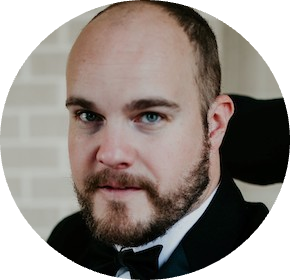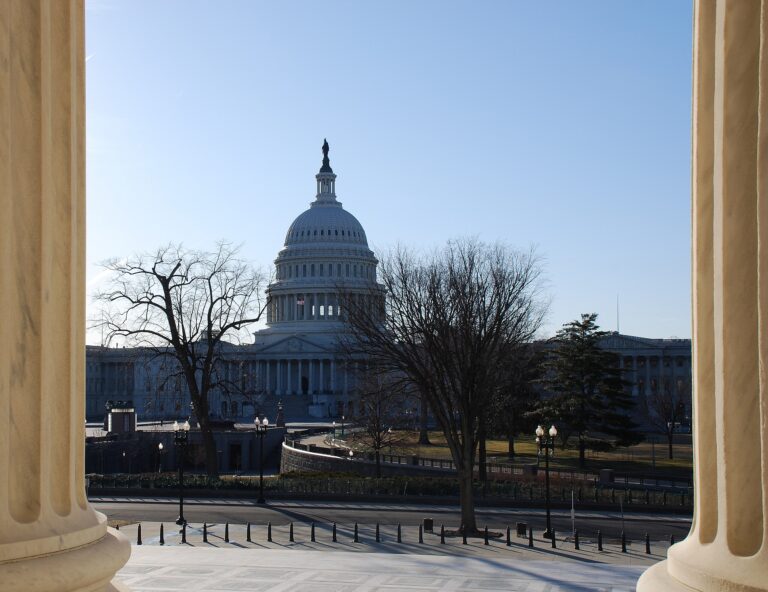
Demonizing Transgender People for Recent Shootings Is Demonic
Matthew P. Cavedon
A Church Interior by Pieter Neefs the Elder (PD-US).
I wrote this essay following the mass shooting at Minneapolis’s Annunciation Catholic School. Demonization of entire groups has only intensified since then—toward Blacks in the wake of the public-transit stabbing of Iryna Zarutska, and toward transgender people and leftists after the Charlie Kirk assassination. I believe my argument is relevant to each of these contexts.
As a human being, as a father, and as a Catholic, my heart broke when a shooter killed children at a school Mass in Minneapolis. My heart is also breaking that one person’s crimes are becoming used to demonize an entire group of people.
I don’t know what drove Robin Westman to open fire through the church windows, and neither does anyone else. Robin is dead. Robin’s mother used to work at the parish until retiring in 2021. Law enforcement has uncovered evidence of Robin’s “deeply nihilistic outlook,” including angry ramblings, obsession with other mass shooters, and anti-Zionist and pro-LGBT notes. There were videos featuring racism, evidence of a recent breakup, and a letter referencing severe depression and fears of cancer. As is always the case, though, the precise founts of this evil remain shrouded in mystery—certainly the demonic wreaked havoc on many parts of the shooter’s life.
What is not a mystery is that Robin used to be named Robert and undertook a gender transition. Some people have decided that clinging to that fact is easier than wrestling with evils that are ultimately beyond us. I thought this attitude was limited to frustrated people in certain Catholic corners of social media, where I saw a disproportionate number of posts about this killing of Catholics by a transgender shooter. As though transgenderism is a militant ideology. As though being transgender inexorably led Robin to target kids as a way of attacking the Catholic Church’s gender conservatism. Distasteful though these descriptions were, they left too much unsaid and were too low-profile to bother addressing.
But these views are turning out to be more influential than I realized. Months after the Trump Administration declared all transgender people mentally unfit to serve in the military, CNN has reported that “Justice Department leadership is seriously considering whether it can use its rulemaking authority to… declare that people who are transgender are mentally ill and can lose their Second Amendment rights to possess firearms.” This, coming from an Administration headed by a president who once threatened: “Take the guns first, go through due process second.”
Reason’s Jacob Sullum has a good takedown of how flagrantly illegal mass gun confiscation from transgender people would be. (And as for military service, Senator Barry Goldwater put it best decades ago: “You don’t need to be ‘straight’ to fight and die for your country. You just need to shoot straight.”)
But I want to approach the Trump Administration’s collective-blame response to the Minnesota shooting from a different angle: this kind of thinking is alien to my Catholicism. I don’t mean that the principle “love everyone” means we should just ignore differences in thinking about gender and sexuality. Rather, first, I mean that the Church has made me allergic to judging groups based on individuals. Jesus taught us to love our enemies—and that we can’t tell who our enemy is based on what group they belong to or even what religion they profess. Yes, transgender advocates and the Catholic Church have differences of conviction. No, these are not reasons to assume a fighting stance. As Pope Leo prophetically asked Catholics to pray in August, the Christian way is not to “succumb to the temptation of confrontation for ethnic, political, religious, or ideological reasons.”
Next, I consider efforts to assign group guilt to be slander. God commands us not to bear false witness against our neighbor. Our entire politics have been degraded into blame and shame. But the Catechism of the Catholic Church condemns as sin “rash judgment”—that is, assuming “without sufficient foundation, the moral fault of a neighbor.” Likewise, “detraction”—disclosing another’s hidden faults and failings “without objectively valid reason.” “Calumny,” too—using falsehood to hurt others’ reputations and cause “false judgments concerning them.” It is a virtue to instead “be careful to interpret insofar as possible” a “neighbor’s thoughts, words, and deeds in a favorable way.”
None of these precepts depend on how the neighbor lives or what she believes. We owe our duties as much to the truth and to integrity before God as to other people. I know of no better example of such honesty than that given by Blessed Dom Chrisitan de Chergé. Before being martyred in Algeria in the 1990s, he left a last will and testament defending the reputation of Islam, Muslims, and Algerians against the harm he foresaw coming to it from his own death:
It seems to me important to state this. I do not see, in fact, how I could rejoice if this people I love were to be accused indiscriminately of my murder…. I know the scorn with which Algerians as a whole can be regarded. I know also the caricature of Islam which a certain kind of Islamism encourages. It is too easy to give oneself a good conscience by identifying this religious way with the fundamentalist ideologies of the extremists. For me, Algeria and Islam are something different; they are a body and a soul. I have proclaimed this often enough, I believe, in the sure knowledge of what I have received in Algeria, in the respect of believing Muslims—finding there so often that true strand of the Gospel I learned at my mother’s knee, my very first Church.
I cannot see the recent demonizations of transgender people, based on so few threads and embodied in such sweeping judgments, as in any way coming from the same Spirit who moved Dom Christian.
Lastly, even the move to identify the killings of the schoolchildren with Robin’s transgenderism strikes me as evil. Jesus rejected, always rejected, the reduction of people to their sins. He taught that tax collectors and prostitutes are storming Heaven while chief priests and religious elders try to slam the doors shut to others, and even to themselves. A woman could have left husband after husband after husband, and be living with one who was not her husband, and still become Jesus’s witness.
Thank God for that. How many of those who find it easy to see transgender people (and, following the Charlie Kirk assassination, those who associate closely with them) as intolerably mentally ill threats understand their own struggles—with masturbation or fornication or pornography or adultery or contraception—in such an uncompromising light? It remains as easy as ever to demonize others for the specks we see in their eyes rather than deal with the planks sticking out of our own. Indeed, anyone who really does take their own planks seriously should have humble compassion for the difficulties even specks can pose.
Lest anyone excuse himself for this by thinking transgenderism is a big plank but commonplace heterosexual sins are mere specks, the objective gravity of a sin is only half—and perhaps the less important half—of the story. To quote the Catechism again, “the promptings of feelings and passions,” as well as “external pressures or pathological disorders,” can “diminish the voluntary and free character” of a sin, whereas sins “committed through malice, by deliberate choice of evil,” are “the gravest.” We almost never know the feelings and passions, pressures and disorders that affect others. Indeed, we can’t even fully judge ourselves. As Saint Paul writes, only God can “bring to light what is hidden in darkness” and “manifest the motives of our hearts.”
How, then, can we ever judge another? Dear heart: we can’t. Satan is “the accuser of our brothers… who accuses them before our God day and night.” To demonize is demonic. As for us, we must judge not, lest we be judged.
Why is demonization so common? Anxiety about who to blame for mass shootings without adopting the too-easy answer of vague calls for more gun control, a desire for revenge against the left for accusing conservatives of violent pathologies, the belief that transgenderism goes against God’s will and that at last here is a politically tolerated way to protest against it: these all prepare the way for temptations from the Prince of Lies. Especially in the midst of mourning those killed due to his evil inspirations, though, be on guard against disorders of your own heart: “Your opponent the devil is prowling around like a roaring lion looking for someone to devour.”
Demonizing is demonic. Love your enemies and pray for those who persecute you. Don’t crucify others in order to play the martyr.♦

Matthew P. Cavedon is a Senior Fellow at the Center for the Study of Law and Religion. He is the author of From the Pope’s Hand to Indigenous Lands: Alexander VI in Spanish Imperialism (2024).
Recommended Citation
Cavedon, Matthew P. “Demonizing Transgender People for Recent Shootings Is Demonic.” Canopy Forum, September 26, 2025. https://canopyforum.org/2025/09/24/demonizing-transgender-people-for-recent-shootings-is-demonic/.
Recent Posts










